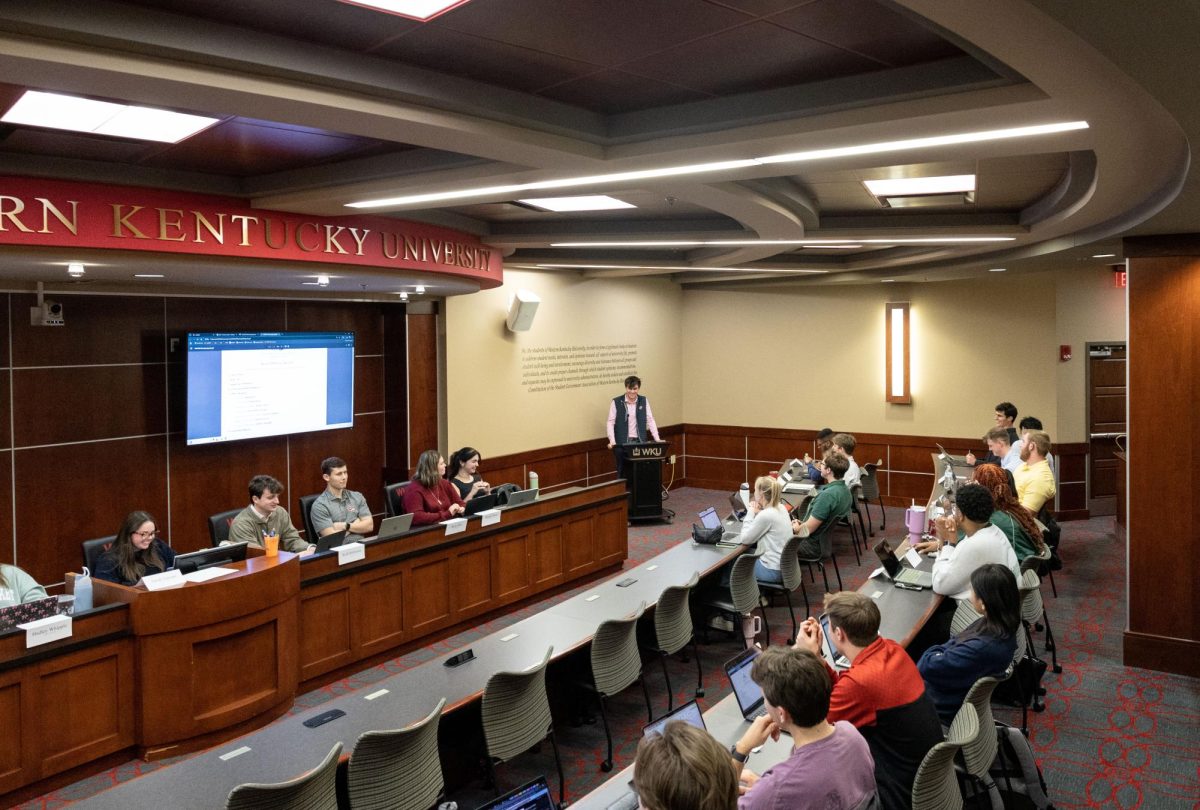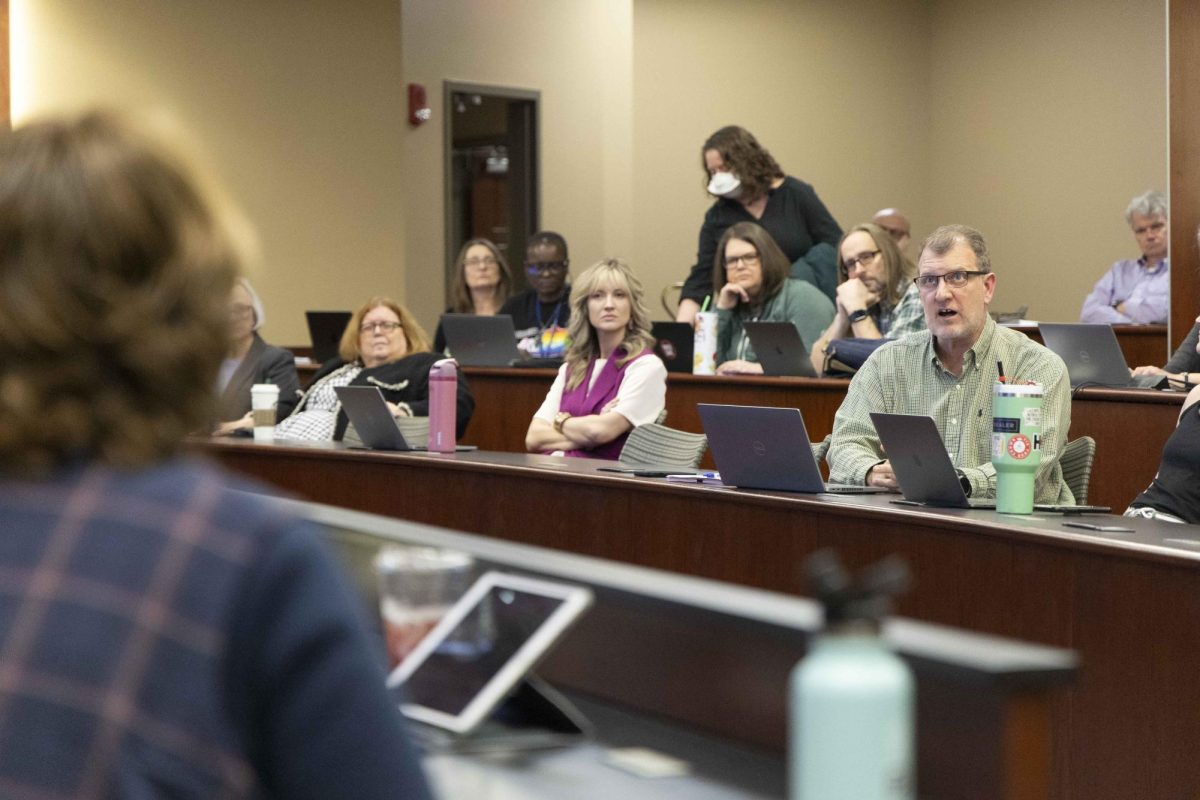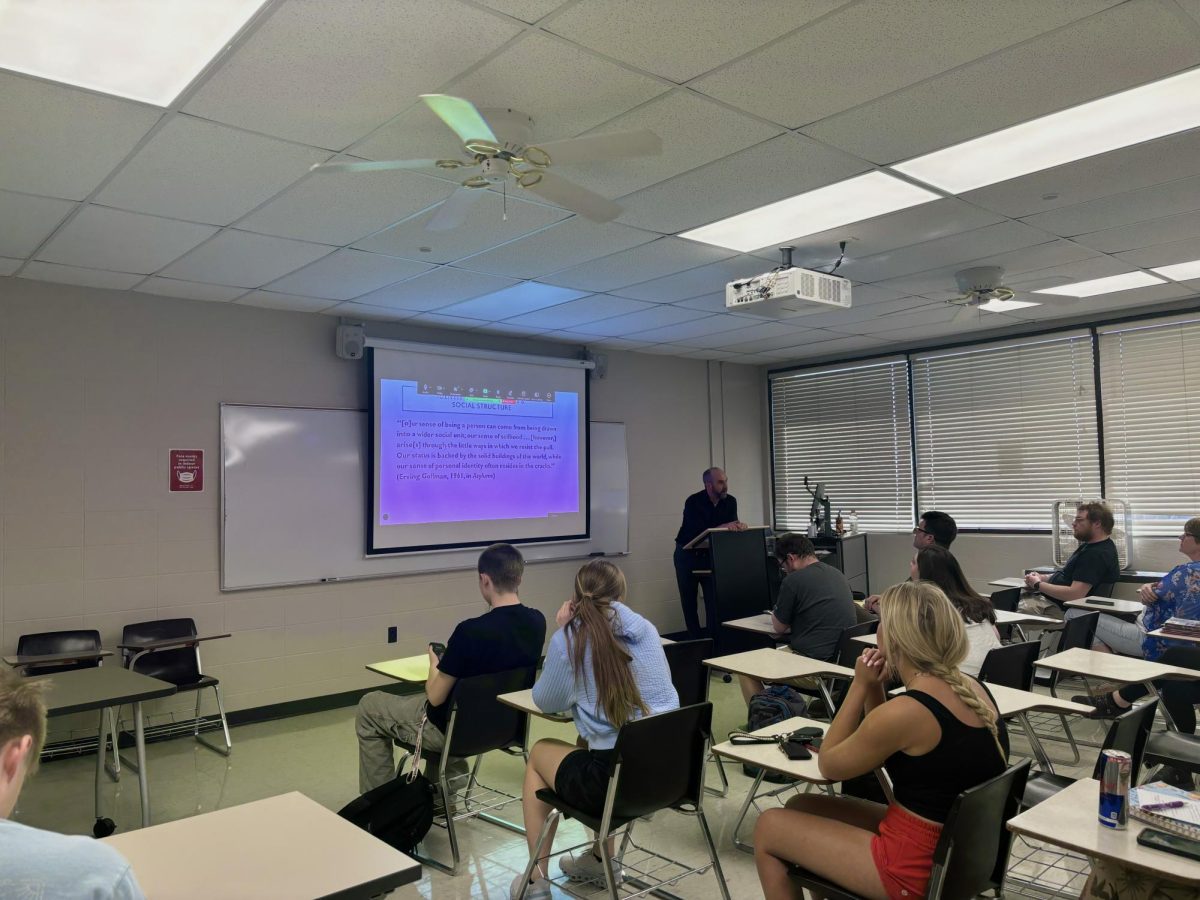WKU administration responded to the Kentucky General Assembly’s decision to override Gov. Andy Beshear’s veto of House Bill 4 on Thursday, which requires the elimination of diversity, equity and inclusion offices and positions at the commonwealth’s public universities.
The bill, first introduced by Rep. Jennifer Decker of Waddy in February, also doesn’t allow university funding to be used for DEI training.
In an email to WKU students on Friday morning, faculty and staff, President Timothy Caboni, Provost and Vice President of Academic Affairs Bud Fischer and Vice President of Student Experience and Dean of Students Martha Sales explained the university must comply with the law, as well as federal legislation and executive orders, to ensure the continued receipt of state and federal funding.
“As an institution that relies heavily on state and federal funding, we must ensure compliance with any new laws and regulations to protect the resources that sustain our mission,” Caboni, Fischer and Sales wrote in the email. “Failure to do so could lead to significant reductions in our operating budget and limit our ability to provide essential financial aid, including Pell Grants. We have a responsibility to thoughtfully navigate new regulations while continuing to serve our students and community.”
The bill requires the elimination of these offices by June 30. University administration promised it would communicate with the campus if large changes would have to be made.
“This legislation may necessitate operational changes,” the administrators wrote. “As the bill just passed, it will take our campus some time to assess what, if any, adjustments are necessary to ensure compliance. We will work closely with our General Counsel to fully understand the law and its implications.”
Administrators emphasized the university’s commitment to student success, writing that this commitment will not change.
“We understand the concerns this legislation has raised, and we want to be clear: nothing in this bill, as written, diminishes our commitment to student success,” Caboni, Fischer and Sales wrote. “WKU has always been – and will always be – dedicated to ensuring that every student – regardless of background – feels supported and has access to the resources they need to thrive.”
HB 4 includes provisions that ensure the academic freedom of students, faculty and student organizations, as well as academic research and the First Amendment freedoms protected by the United States Constitution.
The administrators also reaffirmed their commitment to protecting academic freedom on the Hill.
“We hold dear the First Amendment principle that a university – not government – may determine its own curriculum, the manner in which it is delivered and by whom,” the administrators wrote. “Democracy thrives on dialogue, and at WKU, we take seriously our responsibility to foster an environment where differing perspectives are met with respect. We remain steadfast in preparing our students to be engaged citizens, civic leaders and agents of change.”
Caboni, Fischer and Sales concluded their email by reassuring the campus community that the administration is committed to fostering a culture of belonging and mutual respect among students, faculty and staff.
“Every student matters. Every employee matters. Every member of our community matters. And we remain committed to providing a campus culture that ensures every person who comes to WKU – whether to study, teach, live, compete or visit – knows they belong and finds a place where they are appreciated and valued,” the email stated. “Together, we will continue the work of building a campus community that uplifts every Hilltopper, ensuring they feel at home and empowering them to succeed.”
At the March 13 Faculty Senate meeting, Assistant Provost Molly Kerby said the bill’s impacts would not be as severe as some had previously expected because of its provisions protecting academic freedom and First Amendment rights on college campuses.
“It’s not near as bad as I think we had set ourselves up for,” Kerby said.
The passage of HB 4 comes as state and federal officials ramp up attacks on higher education and DEI initiatives.
Last week, President Donald Trump signed an executive order to dismantle the U.S. Department of Education.
Days into his second term, Trump ordered a freeze on the disbursement of federal grants. The administration later clarified that the disbursement of Pell Grants would not be impacted.
Earlier this month, the president shared a post on his social media network, Truth Social, writing that federal funding for universities would be pulled if they allowed “illegal protests,” threatening the imprisonment or deportation of students who take part.
The 2025 Legislative Session was the second in a row to see a bill targeting DEI on college campuses. The previous year, Decker introduced House Bill 9, which contained many of the same provisions as HB 4. Much of the 2024 language was later adopted in Senate Bill 6, which failed to see action at the end of that year’s session.
Editor-in-Chief Price Wilborn can be reached at edwin.wilborn835@topper.wku.edu. Follow him on X @pricewilborn.







